Participants presentation
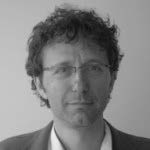
François Jégou
Who are you?
François Jégou is leading Strategic Design Scenarios, a Brussel-based scenarios building laboratory specialising in participative innovation processes, design for social innovation and transition toward new and more sustainable ways of living.
What are you doing (related to the meeting)?
SDS runs last year an in-depth co-design process with families to investigate opportunities to revisit the design of household equipments in order to induce a shift in their usage of energy: the devil is in habits, daily practices and wrong affordance of light switch, thermostat, washing machines and energy meters…
What question or proposition would you like to raise?
How to design products that may influence users towards new and more sustainable ways of living? Beyond the eco-efficiency of domestic equipments, is it possible to think them so that they suggest to their users they should be used in a parsimonious way? Design generally pushes consumption and tends to be part of the problem: how to use the same design skills to enable households to behave in a more responsible way? How could new interfaces empower user rather than making them impotent? What does-it mean to reset default to a ‘normal’ use of things? Could eco-conscious artefacts support eco-conscious users and induce long lasting transformative systemic change in everyday living?
________________________________________________________________________________________________________________________________________
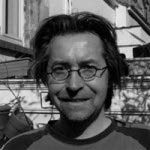
Grégoire Wallenborn
Who are you?
I am graduated in physics and in philosophy at the Université Libre de Bruxelles. In 2002, I turned to the urgent question of sustainable development, and I am now a researcher at the Centre for Studies on Sustainable development (IGEAT-Université Libre de Bruxelles).
What are you doing (related to the meeting)?
I have led various studies about the perception of sustainable development, sustainable consumption patterns, domestic energy consumption, including aspects of social inequalities. I am currently working on the material culture of energy and on scenarios of transformation of consumption practices through the design of appliances.
What question or proposition would you like to raise?
As co-organiser of the non-conference, and from the academic side, I want to explore the potential of design to rethink household energy consumption. I am interested in the emergence of new concepts that would challenge the way energy is made available in homes. Beyond the creation of new interfaces, the whole system of energy distribution should be considered. As energy consumption is distributed between human and objects, how could this question of relation be conceived anew? How energy consumption would be more adequately modulated through space, time and people’s presence?
________________________________________________________________________________________________________________________________________
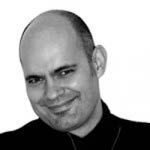
Gilles Rougon
Who are you?
Gilles Rougon is managing the EDF R&D design team which leads future forecast studies and technological developments on energy in collaboration with the 2000 in-house researchers and various external partners.
What are you doing (related to the meeting)?
Everyday EDF R&D designers face different aspects of energy efficiency including energy intuitive materialization, more aesthetical and functional integration of renewable energies solutions, design for all, design to cost and energy services design. EDF R&D stays convinced that reduction in energy consumption and C02 emissions calls for collaborative innovation.
What question or proposition would you like to raise?
To design in energy field means playing with paradoxes such as :
– to materialize invisible energy, as a possible attractive mean to induce less consumption and idealy more comfort in everyday life
– to help change energy behaviours by adding incremental new manufactured solutions (plugs, interfaces, lights, screens, systems …) may generate new energy misbalances and problems
– to combine scenario (co)-designs and some real applications to be evaluated in real life
– …
________________________________________________________________________________________________________________________________________
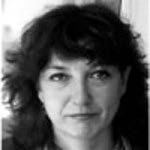
Sylvie Douzou
Who are you?
Sylvie Douzou graduated in social sciences at the University of Montreal and joined EDF Research in 2002. She leads the interdisciplinary Research Programme “Energy Demand and Dynamics of Consumption” (EDDC) for the European Centre/Labs for Energy Efficiency Research (ECLEER) set up in June 2007 by EDF, jointly with the School of Mines (Paris) and the EPFL (Lausanne).
What are you doing related to the meeting?
Sylvie is involved in/committed to several interdisciplinary research projects dealing with the dialectic relationship between technology and social practice and its implications for energy consumption system and services.
What question or proposition would you like to raise?
Sylvie is especially interested in exploring the “potential” of material culture and artefacts when put in perspective with energy demand and CO2 reduction issues.
________________________________________________________________________________________________________________________________________
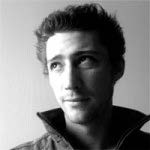
Haroun Landrain
Who are you ?
Haroun Landrain. I am an industrial design student, in second year of master “sustainable design” at St Luc Liège.
What are you doing ?
I am studying domestic sustainable design and trying to see where are the problems with our present habits in energy consumption at home.
I currently work with Greg Wallenborn on this project and I want to finalise a master thesis called ” Designing for a new domestic consumption”.
What questions or propositions would you like to raise ?
I would like to know what designers can propose to reduce energy consumption and what consumers are ready to do. I think that we need to examine new comfort concept in better relation with energy consumption.
People want and need comfort but a lot of our habits are not sustainable.
I aim to think and work on new concept more eco-responsable, and which gives to consumers more comfort by accentuating the cocoon effect.
What are the practices that could be changed without losing comfort?
How could comfort be improved without raising energy?
________________________________________________________________________________________________________________________________________
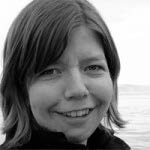
Ida Nilstad Pettersen
Who are you?
Currently I am a PhD student at the Department of Product Design at the Norwegian University of Science and Technology (NTNU) in Trondheim, Norway. I am an industrial design engineer from NTNU and Politecnico di Milano, and have previously worked on participatory urban development in Guatemala.
What are you doing (related to the meeting)?
In my project I am studying the opportunities for designers to influence user behaviours and facilitate more sustainable consumption practices through design, and, the prospects for introducing such thinking to industrial practice.
What question or proposition would you like to raise?
I’m interested in what opportunities designers have for supporting shifts towards more sustainable practices through design, from within an industrial context.
________________________________________________________________________________________________________________________________________
Elizabeth Shove
Who am I?
I am a Professor of Sociology at Lancaster University, in England. I first got involved in energy-related research in the late 1980s while working for an institute of architectural studies. Since then I have written quite a lot about everyday life, consumption and practice – for example, ‘Comfort, Cleanliness and Convenience: the social organization of normality’ (Berg 2003). I currently have an ESRC funded Climate Change Leadership Fellowship on “Transitions in Practice: Climate Change and Everyday Life” and I am one of the directors of a new ESRC funded “Sustainable Practices Group”.
What am I doing related to this meeting ?
I have worked on various projects to do with design – including one on the kitchen and the bathroom and more recently on ‘The design of everyday life’ (Shove, Watson, Hand and Ingram, Berg 2008). This meeting brings this design-oriented strand of work together with questions of energy and sustainability. It also relates quite closely to the development of a suitably materialised theory of practice, and to ways of conceptualising and intervening in the soft and hard ‘infrastructures’ of ordinary consumption.
What question or proposition would I like to raise?
I remain quite critical of the idea that it is important to reveal energy consumption – after all, people don’t use energy: they reproduce and consume the services it makes possible. I am more interested in trends that really matter for consumption – like the size of dwellings and appliances, and hence the ways of life and forms of demand they afford. Since space heating and cooling are critical topics for energy use. I would like to concentrate on these issues and on clothing as an energy-related technology.
________________________________________________________________________________________________________________________________________
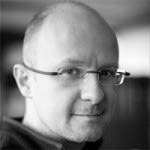
Philippe Vandenbroeck
Who am I?
I am a partner in shiftN, a consultancy focused on future studies and systems analysis. My background is in bio-engineering, philosophy and urbanism.
What am I doing related to this meeting ?
In our work we often deal with ‘wicked’ macroscopic problems where aggregate behaviour from myriads of actors produce undesirable consequences (e.g. see our work on obesity: http://www.shiftn.com/obesity/Full-Map.html). We are interested in deepening our insight in how to intervene more effectively in those complex systems.
What am I doing related to this meeting ?
For a start, I am interested in three questions:
-To what extent design solutions can be found that address people’s “psychological ambivalence” (i.e. the tension between what they know is good for them/the larger whole and what they want)?
-To what extent is it possible to create an environment that makes visible not only electricity flows but also other energy flows (including caloric flows in and out of the body)?
-To what extent is it possible to extrapolate this beyond the household to visualise an urban metabolism as a whole?
________________________________________________________________________________________________________________________________________
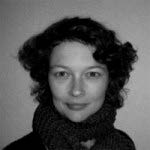
Lenneke Kuijer
Who are you?
I’m a PhD candidate at the Faculty of Industrial Design Engineering of Delft University of Technology, where I’ve also completed my bachelor and a master in Strategic Product Design. My project is connected to the EU funded Living Lab project; a design study for a research infrastructure to study human interaction with and stimulate the adoption of sustainable innovations around the home. The topic of my research is Practice-Oriented Design.
What are you doing (related to the meeting)?
In my research I try to integrate practice theory into a practice-oriented design approach aiming to reduce household resource consumption. My research consists of literature study into the touching points of practice theory, sustainable design, applied ethnography and co-design and a number of design projects. Last year I’ve done projects around the practice of bathing and recently I’ve started a project on the practice of staying warm at home. I’m also supervising a student who is working on food acquisition practices.
What questions or propositions would you like to raise?
Practice theory is suitable for and has been extensively used to describe current practices and how they came to be as they are. Roughly said, the task ascribed to design is to distill opportunities from this description to steer practices in more sustainable directions. Although already very valuable and insightful in itself, guidance for designers on how to interpret the information, how to do practice-oriented design and how to evaluate their ideas according to the principles of practice theory are not systematically offered. In my exprience, practice theory is difficult to understand for designers and more support in the form of methods and tools could help them to apply practice theory more effectively and fulfill their role in reaching more sustainable practices.
________________________________________________________________________________________________________________________________________
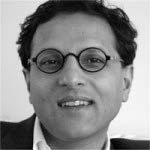
Alok Nandi
Who are you ?
Independent designer and writer/director. Techno- and media-agnostic. Active in new media. Focused on “narrative design”, information architecture and interactive mise-en-scene. Background combines engineering, management and film studies. – www.aloknandi.net
What are you doing ?
Working on multiple media projects where the “narrative envelope” can be enlarged, both in terms of topics covered but also on the styles of story-telling and story-sharing (interventions, exhibitions, pecha kucha) : one priority theme is “rasa”, food / energy / juice – the modes and codes related to production, consumption and effects on society at large (fm household to societal flows).
What question or proposition would you like to raise ?
A general agreed working assumption in design is suggesting that visualization (i.e sense-making) could result in changing ways of doing things (i.e change-making). What are / can be the inflection points ? Knowing that human beings in communities react differently and sometimes unpredictably when not alone, because a.o of social pressure, fashion, or other implicit behavioral patterns.
________________________________________________________________________________________________________________________________________
Adrien Demay
Who are you?
With Damien Roffat (formerly of ENSCI too) we are working on territorial issues in & through DTA: for short, we have been supporting local communities in their project design community outreach services on topics that deal with ‘ecology, culture, social links, and the concept of common property … and if possible, the 4 at a time!
What are you doing (related to the meeting)?
Currently, we are working specifically within a team to mount a “ressourcerie”; the waste issues inevitably refer to those of consumption, including that of power consumption (something that often comes up in our surveys among residents) . The “ressourcerie” wants to be an place for information and awareness on waste management and consumption at large and a forum to exchange knowledge and practices.
What question or proposal you would like to raise?
I’d be very interested to participate in discussions about practices related to energy independence and reducing consumption, as well as networks of local production or hyper-local …
________________________________________________________________________________________________________________________________________
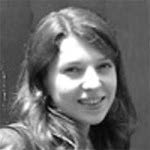
Sophie Némoz
Who are you ?
I completed a PhD in sociology at the Université Paris Descartes – Sorbonne. From April 2010, I begin a post-doctorate at the Centre for Studies on Sustainable Development (IGEAT – Université Libre de Bruxelles). I will be responsible for studies on energy consumption in everyday life.
What are you (related to the meeting) ?
For the next months, I am in charge of a study on household practices and imaginaries about energy. The investigation focuses on rebound effect. The underlying idea is to rethink this concept through an empirical approach. Following a thesis dedicated to the innovation of sustainable housing, I am especially interested in exploring the potential of design and the limits.
What question or proposition would you like to raise ?
What are the inventions that could make daily tasks easier and reduce polluting effects?
To what extent technological objects can influence the energy consumption of household activities? How bring into general use this kind of performance?
________________________________________________________________________________________________________________________________________
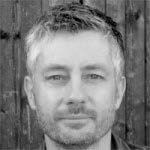
Pierre-Yves Panis
Who are you?
My name is Pierre-Yves Panis.
I am the Head of Design for Legrand, one of the world’s leading manufacturer of electrical systems.
I coordinate Legrand’s international design teams in developing innovative solutions that deliver and control power and data for users all around the globe.
What are you doing (related to the meeting)?
At Legrand, we believe that our design “mandate” has to be structured around three main actions: observation, strategy, creation.
Three actions that follow one another – and it has become obvious to all at Legrand that “observation” is the key to any meaningful strategy.
While it concentrates mainly on “everyday” projects, the Legrand design team also spends some of its time (ideally close to 15%) working on non-operational subjects. And these subjects are usually intiated because of some discovery gained through observation.
In this context, thinking about our everyday energy consumption (and ways to manage it better) is something we are very intrigued about.
We believe it is our role, as a major commercial player, to help come up with solutions that will promote better efficiency while providing delight to all of their users.
What question or proposition would you like to raise?
I believe everyone (well, almost everyone) has come to understand how important it ihas become to be more efficient – while, hopefully, still being fully satisfied with our everyday experiences…
Now, how do we get users (all of them: residential and non-residential ones) to feel at the same time “compelled” and happy to embrace change?
As the say has it, the devil is in the details!
________________________________________________________________________________________________________________________________________
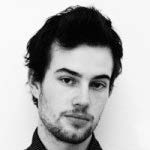
Goliath Dièvre
Who are you ?
Graduated in industrial design at l’ENSCI /Les Ateliers I now work in association with Quentin Vaulot. Various experiences during my studies, especially amongs EDF R&D and SDS, opened new ways of seeing product conception especially in terms of scenario.
What are you doing ?
We often work with organisations. Sometimes on a volunteer basis to support a mission. But we also want to work with companies that are not always aware of the impact of their products. Sometimes the specification proposed is not adapted to real needs. We believe that the designer has a growing role for an upstream reflexion in the very definition of the demand. We have worked with Veolia Water in this way.
What question or proposition would you like to raise?
The question we ask ourselves and would like to ask others in terms of energy consumption in the domestic space is how to get to change habits without being intrusive or moralistic? What is the significant touch point to make it work? Humor, fantastic, social …?
________________________________________________________________________________________________________________________________________
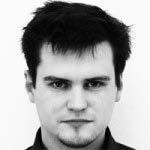
Quentin Vaulot
Who are you ?
I’m an industrial designer and recently installed in association with Goliath Dyèvre. In our design activities we want to guide research related to contemporary issues. We do not believe that these issues can be reduced to ecology in the scientific sense. For us there is an ecology of the shapes, of the imagination and sense, the point is to lead a global reflection on the object.
What are you doing ?
We work with many organisations. Most recently with Noe Conservation, an organisation dealing with biodiversity which has established a census network of biodiversity through individuals, over 25,000 people regularly participate to this network. We also worked with the e-graine organisation whose mission is to educate and promote behavior related to sustainable development.
What question or proposition would you like to raise?
We would like to propose and discuss on how to build a strong and coherent vision related to the issues of energy consumption in the domestic space. How a minimal intervention, but direct and realistic can shift attitudes and practices. How can these interventions be simple, understandable or even obvious. What we seek is mostly how to find the right questions. We know from experience that if we have the right question the right answer is not far.
________________________________________________________________________________________________________________________________________
Conny Bakker
Who are you?
I have 20 years of expertise in sustainable design. Since two years I’m assistant professor at the faculty of Industrial Design Engineering, University of Technology, Delft. Before that I used to have my own consultancy, Info-Eco. I used to give advice on eco-design strategies. And even longer ago I used to work at the Netherlands Design Institute as project manager sustainability.
What are you doing?
I coordinate and teach a minor in Sustainable Design. My current research focuses on two areas: ‘materials scarcity’ and ‘user centred sustainable design’. Two really diverse fields that intersect in interesting ways.
What question of proposition would you like to raise?
My research into materials scarcity has taught me to take a more systemic approach to this topic. My proposition is that in order to make a real change in people’s behaviour, we’ll need to make it socially unacceptable to squander energy. This will require design interventions at many levels. As a starting point, I think we should reframe the problem not as ‘saving energy’, but as ‘stopping energy from being recklessly wasted’. The Hummer is no longer socially acceptable, nor should incandescent light bulbs or phantom loads be acceptable anymore.
________________________________________________________________________________________________________________________________________
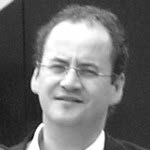
Arthur Jobert
Who are you?
I am Arthur Jobert.I have been working for EDF R&D for more than a decade. I was trained in political science and in public policy analysis (social policy) but my different research experiences provided opportunities to explore a broader range of approach and issues namely in the fields of political sociology and in the field of science and technologies studies.
What are you doing (related to the meeting)?
My main field of research is the social acceptability of power plants (controversies, participatory process, public opinion surveys…).But In the last five years, I involved in researches projects on ohter issues. These different studies araise questions on the link between policy tools or programmes, the the uses of electricity and the changes in the pattern of energy consumption :
– access to energy in developping countries (what business model in rural electrification for what energy uses?)
– standard and labelling in developping countries (S&Lcold appliances programmes in Egypt, Morrocco, Tunisia : effectiveness and impacts on poorer consumers)
– voluntary carbon offsett (controversies about a social innovation)
What question or proposition would you like to raise?
What can we learn from controversies and everyday life appliances (ex : phasing out of incandescent light bulbs)?
How can these interrogations of the public be integrated in the innovation process? Can participatory approach be useful?
What innovation policy design to support innovation in everyday lifes (incentives, regulation, information, education).
Can a “pro poor”, “prodevelopment”‘ orientation be given to research in the field ? Can the specific questions and issues of poor consumers (in developped and developping countries) provide ideas and markets in the prospect of energy transition?
________________________________________________________________________________________________________________________________________
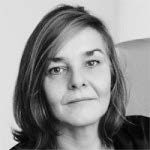
Marie-Haude Caraës
Who are you?
Political scientist, head of research in the Cité du design and lecturer at the ENSCI (Ecole nationale supérieure de création industrielle). My academic specialities are the study of the space of influx, the innovation in design, and colonialism (literature and exact sciences).
What are you doing (related to the meeting)?
Within those functions, I organise in the Cité du design researches in the fields of energy, medical design, design of services, housing, sustainable development, relations between uses and technologies, etc.
What question or suggestion would you like to raise ?
Questions about the use of energy.
________________________________________________________________________________________________________________________________________
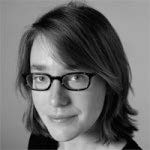
Noortje Marres
Who are you?
I am a research fellow in the Institute for Science, Innovation and Society, University of Oxford. I was trained in sociology and philosophy of science & technology at the University of Amsterdam, and much of my work has focused on social and political theories of participation in technological societies, in particular ‘object-centred’ perspectives on it.
What are you doing (related to the meeting)?
My interest in household energy practices derives from this previous work on objects and technologies of participation. Over the last years, I have researched mundane devices of environmental literacy, initially with funding from the European Union, and now at Oxford.
This work explored a variety of practices, from green living blogs, to personal carbon accounting initiatives, and art projects involving renewable energy devices in public space. For most of these cases I used a combination of fieldwork and digital methods, such as network and textual analysis on the Web.
What question or proposition would you like to raise?
My main interest is in the forms of (dis-)engagement that mundane objects and devices facilitate, and how experimental practices involving such things allow us to ask different kinds of questions about participation – What is it that everyday action facilitates (or obstructs) engagement with? What are the implications of ‘costing’ participation in terms of the time and effort it takes? How is indifference a relevant modality of engagement?
________________________________________________________________________________________________________________________________________
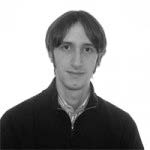
Aldo Olivero
Who are you?
I’m graduated in Industrial Design at Politecnico di Torino. Now I’m attending the second year of Master Degree in Product Design at Politecnico di Milano.
What are you doing (related to the meeting)?
I’m following several project about energy saving and sustainable way of living. I’m writing a thesis about transgression and how it can be a starter of innovation.
What question or proposition would you like to raise?
Sustainability is too often an imperative. Is it possible to relate transgression and sustainable way of living? How it can become “cool” and, why not, transgressive? How energy-saving household house could be en-vogue and not only a niche of the market?
________________________________________________________________________________________________________________________________________
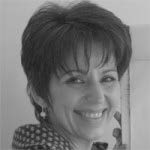
Joelle Liberman
Who are you ?
I’m Joelle Liberman, I’m gradued in social sciences at université libre de Bruxelles (ULB).
Since 1988 I lead a research agency Égérie Research specialising in qualitative research and mostly in a co-elaboration approach. More specifically we work at the interface between users (consumers, citizen stakeholders…) and project holders (brands, university, research project…)
What are you doing related to the meeting ?
Together with Strategic Design Scenarios we took part last year to an in-depth co-design process with families to investigate opportunities to revisit the design of household equipments in order to induce a shift in their usage of energy: our concern was to facilitate the conversation between the family and the designer and also try to understand the reason to adopt a new habit
What question or proposition would you like to raise ?
How could we facilitate the conversation between family and designers ? What kind of material should we provide to support the conversation and initiate the change into the family habits?
What is the level of co-elaboration that this kind of project need to be efficient on both sides (designer and family)?
What are the practical and symbolic dimensions of the change ?
________________________________________________________________________________________________________________________________________
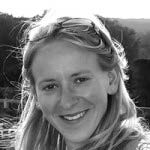
Sonja van Dam
Who are you?
In joint cooperation between Architecture and Industrial Design Engineering, I am conducting a PhD research at the Delft University of Technology. I have a background in Industrial Design Engineering with a master in Design for Interaction.
What are you doing (related to the meeting)?
The topic of my PhD thesis is on ‘smart energy management for households’. I am interested in how the effectiveness of home energy management systems (HEMS) can be increased. HEMS are intermediary products that can visualize, manage, and/or monitor the gas or electricity consumption of other appliances or whole households. Specifically, I am looking at the design of, and interaction with, these devices and how they are incorporated in peoples daily lives.
What question or proposition would you like to raise?
Feedback is not enough to achieve lasting behavior change. People could benefit from being able to additionally control (and feel in control) if and when their applainces consume energy. These management devices operate more in the background, programmed (by users) to switch off appliances.
However there is a paradox as it has been shown that people consume more energy when using a programmable thermostat. Programmable thermostats function in the background like several other appliances with a large impact on overall consumption. This lead to a disengagement and disburdenment with appliances. Yet products that are designed to have ‘meaningful’ interaction with (e.g. truly yours) are often more cumbersome. Users are accustomed to disburdening products that ‘simplify’ life. But should this be advocated? And does it mean that when the control over when devices consume energy can be automated by users, it actually leads to people consuming more energy?
________________________________________________________________________________________________________________________________________
Ariane Debourdeau
Who are you?
Ariane Debourdeau is a research assistant at the Centre de sociologie de l’innovation at Mines ParisTech. She has a PhD in political science and has first specialized in environmental normalization and governance.
What are you doing (related to the meeting)?
Her current research deals with renewable energy and specifically with the construction of photovoltaic markets and related issues, particularly climate change and grids’ decentralization. She tries to mix sociology of markets, science and technology studies and political science to problematize the “good” domestication of solar energy and the ways it may empower individuals to contribute to the preservation of common goods.
What question or proposition would you like to raise?
She is interested in the many possible forms of “empowerment” that design could provide and in the role that the latter may exert in shaping pragmatic sustainable policies.
________________________________________________________________________________________________________________________________________
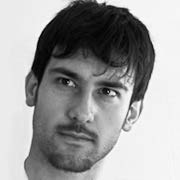
Alberto Solazzi
Who are you?
Design student at Politecnico di Milano, attending last year of master’s degree.
Currently serving an internship at SDS.
What are you doing (related to the meeting)?
My interests are being oriented on product design strategy. I’m developing a project about thermo-furniture for home living.
I believe in the importance of research as a process to absorb and to return knowledge, as the role of design is cross-fertilization, transferring knowledge from a field to another in order to raise one step further.
This “innovation camp” is going to increase my design culture: the time we’re living in should become an opening key for a generation of designers with new visions in the head to develop, new solutions in the pocket to exchange.
What question or proposition would you like to raise?
I’m interested in taking part in defining a multidisciplinary approach about home living sustainability, we’re talking about household consumption but there’s something upstream and downstream of the system, so this should be just the beginning of a deeper reflection about changing products’ lifecycle processes. But not only..
I have some questions to point out about the role of contemporary product design. I sometimes look at sustainability with a critical mind, because today the conflict about what is good or bad, what is useful or useless, what is worthy or worthless seem to be not well solved.
________________________________________________________________________________________________________________________________________
Nik Baerten
Who are you?
I am co-founder and partner at Pantopicon, a studio for futures exploration and visioning based in Antwerp (B), where my colleagues and I work with public and private organizations to help them see, design and act upon the future. I have a background in knowledge engineering and also teach a course entitled ‘futurestudio’ at the Media & Design Academy (Genk, B) which blends future thinking and design methods.
What are you doing (related to the meeting)?
The societal transition towards more sustainable ways of living & working is at the core of many future challenges we deal with on a daily basis. As such, I am for example involved in projects ranging from alternative visions on sustainable urbanism, to innovative concepts for future-inspired products/services/experiences in energy prosumption, to designing for social/behavioural change.
What question or proposition would you like to raise?
Among the many questions which the topic of the non-conference raises, some of interest to me are:
How can we re-animate the notion of energy and energy prosumption in a world in which energy can be seen as currency?
How can we reassess the meaning of our interactions with energy flows in order to enable behavioural change?
How would it alter our behaviour if our current ‘wasted cycles’ of energy production (e.g. body movement, weight, heat, …) would be core sources of energy in tomorrow’s world?
Which new pathways are opened up when we use organic metaphor instead of old mechanistic ones to explore possible future worlds/systems of energy prosumption?
________________________________________________________________________________________________________________________________________
Virginia Tassinari
Who are you?
I’m a young Italian philosopher who blends insights from philosophy, sociology and semiotics in her research and teaching activities at the Media and Design Academy in Genk, in order to shed new light onto the broad range of contemporary societal challenges for media and design.
What are you doing (related to the meeting)?
Together with my colleague and partner in life, Nik Baerten, I am currently working on a project focussing on design for togetherness. This student project at the Media & Design Academy, targets the old mining area of Genk (B) in which design interventions are aimed at transforming behaviours and social patterns. I am also working on the poetry of objects, on how they can be a poetical means to communicate meanings and emotions, from the perspectives of semiotics of design. In view of the Cumulus conference Borderline (Genk, May 2010) part of these insights will materialize in a Wunderkammer exhibition. Furthermore, I recently participated in Lab’Eay for the project Drinkkraantjeswater of ReCentre (Center for Sustainable Design), which aims to develop new concepts for a more sustainable use of water.
What question or proposition would you like to raise?
Among the questions that inspire me are : How can the house become an organism representing a chain of energy flows? How can we build new relationships to our dwellings, not as ‘items’ we possess and rule but rather things that stand in a dynamic, vital, emotive relationship to us? Can we grow a responsibility towards our house, feel responsible for the energy waste? Can we grow an emotional relationship ? Can it become our friend, our pet, an active partner in teaching us where we make mistakes and how to set them straight?
________________________________________________________________________________________________________________________________________